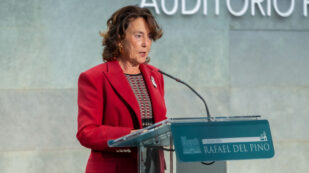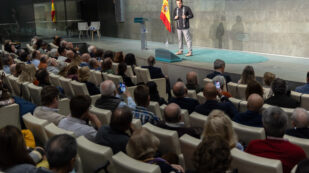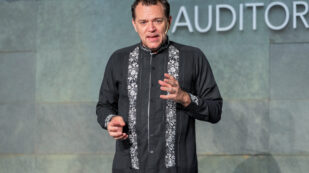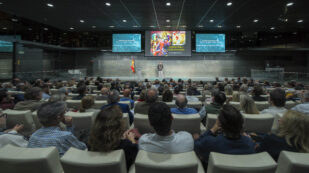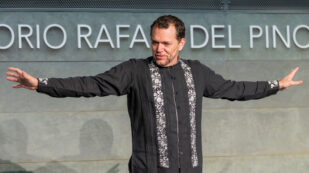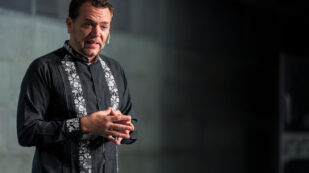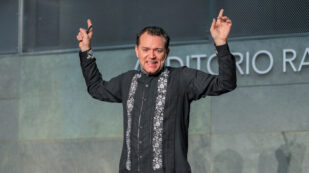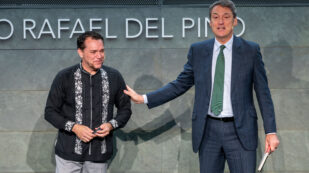The fusion between two worlds. History of what Spain built in America
Summary:
On 29 October 2025, the Rafael del Pino Foundation hosted the master lecture «La fusión entre dos mundos. History of what Spain built in America», given by the writer and historian Juan Miguel Zunzunegui and organised together with the Fundación Unidos por la Historia, on the occasion of the publication of his work "The Fusion between Two Worlds. The Day After the Conquest: The Story of What Spain Built in America.
In his address, Zunzunegui dealt with the historical process that followed Spain's arrival in America, proposing an analysis based on documentary sources and the study of the political, legal and cultural context of the 16th century. He stressed the importance of distancing the discussion from reductionist narrative frameworks and polarised readings that tend to interpret that episode solely in terms of confrontation or unilateral domination.
Based on this premise, he proposed the need to consider the complexity of the historical process, in which the dynamics of conquest, resistance and conflict coexisted with others of negotiation, alliances, cultural exchanges, miscegenation and institution-building. In this approach, the Hispanic world that emerges from that encounter is not conceived as a mere European prolongation or as a linearly imposed structure, but as a new historical reality, the result of multiple interactions and reciprocal transformations.
The author devoted a substantial part of his analysis to a critique of historiographical presentism, pointing out the risks involved in applying contemporary moral categories and sensibilities to the realities of the Ancien Régime. From this perspective, he stressed the need to approach the past through a rigorous study of the sources, knowledge of the legal-political framework of the period and an understanding of its mental structures, avoiding both idealisation and systematic disqualification.
Zunzunegui also highlighted the intellectual, linguistic, legal and institutional legacy that was shaped by this historical process and that explains the consolidation of a cultural space that today connects more than 550 million people. This legacy, he pointed out, constitutes a complex historical reality, with lights and shadows, which needs to be analysed with categories specific to its time and in dialogue with comparative historiography.
The session concluded with a reflection on the role of historical analysis as a tool for understanding long-term processes and for contextualising contemporary debates around memory, identity and the political construction of narratives of the past.
The Rafael del Pino Foundation is not responsible for the comments, opinions or statements made by the people who participate in its activities and which are expressed as a result of their inalienable right to freedom of expression and under their sole responsibility. The contents included in the summary of this conference are the result of the debates held at the meeting held for this purpose at the Foundation and are the responsibility of their authors.
The Rafael del Pino Foundation is not responsible for any comments, opinions or statements made by third parties. In this respect, the FRP is not obliged to monitor the views expressed by such third parties who participate in its activities and which are expressed as a result of their inalienable right to freedom of expression and under their own responsibility. The contents included in the summary of this conference are the result of the discussions that took place during the conference organised for this purpose at the Foundation and are the sole responsibility of its authors.
